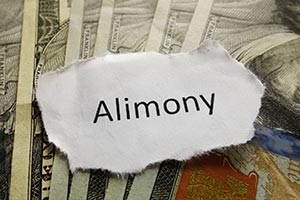Does Alimony End When You Remarry In Colorado?
 Do alimony payments stop when the receiving ex-spouse gets remarried? In Colorado, the answer depends on the type of spousal support being paid.
Do alimony payments stop when the receiving ex-spouse gets remarried? In Colorado, the answer depends on the type of spousal support being paid.
Types Of Alimony, And How Remarriage Affects Them
We usually hear of spousal maintenance being paid on a regular basis (monthly or biweekly). This periodic alimony is only one type of spousal support in Colorado. There are two other types: lump sum payment and transfer of property. Unlike periodic alimony, these two kinds of spousal support are done as one-time payments. After the payor has fully paid or transferred the one-time amount, they will no longer have any regular payment obligations to their ex-spouse.
Because of this, only periodic alimony can end upon the recipient’s remarriage. Remarrying does not affect lump-sum or property transfer alimony. In other words, a former spouse who has received a one-time alimony or a property transfer is not required to reimburse those to the payor upon remarriage.
How To Stop Paying Alimony When Ex-Spouse Remarries
If you are paying alimony directly to your former spouse, you may simply stop sending these payments starting from the date of their new marriage. Spousal maintenance ends automatically upon the recipient’s remarriage, so there is no need for any court procedure.
If the alimony is garnished (withheld) from your wages, your employer may not realize that your ex has remarried and that the garnishment should stop. You’ll want to inform them that your obligation has ended. Expect that your employer may not take your word for it. In this case, you will need to request the court for a formal order to stop the income withholding.
When Alimony Continues After Remarriage
Although the general rule is that spousal maintenance automatically ends when the supported spouse remarries, there may be exceptions to this. For example, the divorced parties may have previously signed an agreement stating that maintenance can’t be terminated or modified even upon remarriage.
There are also many cases where the receiving ex-spouse does not inform the alimony payor about the new marriage. The unaware payor continues sending payments until they find out about the marriage months later. If you are the payor in this situation, you can file a motion with the court to get reimbursement of any alimony you paid after your ex has remarried.
Does Alimony Stop In Common Law Remarriage?
Colorado is one of the few states that recognize common law marriage. This is where a couple cohabitates (lives together) and mutually identifies themselves as married even without an official ceremony.
Since common law marriage is legally recognized in Colorado, it is treated the same way as a ceremonial marriage when it comes to ending spousal maintenance. This means alimony is terminated when the supported ex-spouse enters into a common law marriage.
Related Topic: Business Law Attorney in Denver
This comes with implications. If you are an ex-spouse receiving alimony, you may want to consider this when cohabitating with a new partner. Cohabitation could give the alimony payor grounds to claim that you are in a common law marriage, thus ending your spousal maintenance.
If you have questions about remarriage and the end of alimony, reach out to us at Goldman Law. Our experienced attorneys are ready to give you legal advice that is indispensable in your situation.

